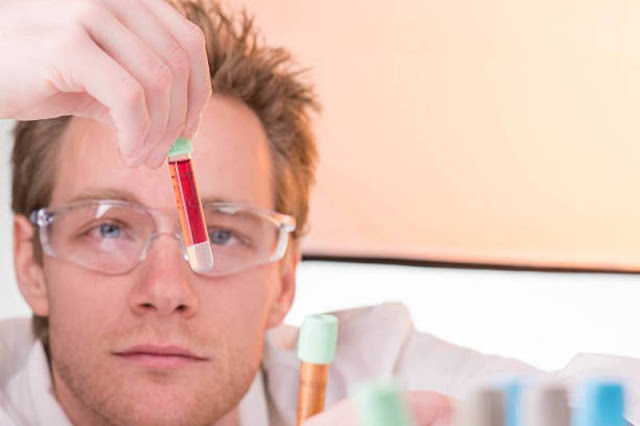Featured
- Get link
- X
- Other Apps
what can cause a false positive herpes test?
False positive herpes test results can occur for several reasons, and it's important to understand these factors to avoid unnecessary anxiety and medical intervention. The two main types of herpes viruses are Herpes Simplex Virus 1 (HSV-1) and Herpes Simplex Virus 2 (HSV-2). False positives can occur with both types of herpes tests, including blood tests and swab tests. Here are some common reasons for false positive results:

Cross-reactivity: Some blood tests, like the enzyme-linked
immunosorbent assay (ELISA), can cross-react with other viruses or antibodies
in the body. This cross-reactivity can lead to a false positive result. For
example, if you have been exposed to other herpesviruses, like Epstein-Barr
virus (EBV), it can potentially trigger a false positive result.
Testing too soon after exposure: If you have recently been
exposed to the herpes virus but have not yet developed a detectable level of
antibodies, a test may yield a false negative result. Antibody levels may take
several weeks to rise to detectable levels after infection.
Testing errors: False positives can occur due to laboratory
errors, sample contamination, or mishandling of the sample. It's important for
healthcare professionals to follow proper testing and handling procedures to
minimize the risk of false results.
Prevalence in the population: In populations with a low
prevalence of herpes, even a highly specific test can produce false positives.
This is because the likelihood of encountering a true positive case is
relatively low, leading to a higher proportion of false positives.
Low-specificity tests: Some herpes tests may have lower
specificity, meaning they are more prone to false positives. It's important to
choose a reliable and well-validated test with high specificity when seeking
herpes testing.
Immune system factors: Individual variations in the immune
response can impact test results. Some people may produce antibodies
differently, potentially leading to false positives in rare cases
If you receive a positive herpes test result and are
concerned about its accuracy, it's important to consult with a healthcare
professional for further evaluation and potentially retesting. Confirmatory
tests, like Western blot or PCR (Polymerase Chain Reaction), can be used to
verify the results. Additionally, discussing your sexual history and potential
risk factors with a healthcare provider can provide valuable insights and help
determine the appropriate course of action.
Cross-reactivity:
Cross-reactivity refers to a situation where a diagnostic
test, such as a blood test, reacts with substances other than the intended
target. In the context of herpes testing, cross-reactivity can lead to a false
positive result because the test may detect antibodies or proteins that are
similar to those produced in response to the herpes virus, even if the herpes
virus itself is not present.
Here's how cross-reactivity can occur in herpes testing:
Similar viruses: Some viruses are closely related to the
herpes simplex virus, such as other herpesviruses. Antibodies produced in
response to these related viruses can cross-react with the antigens used in the
herpes test. For example, antibodies produced in response to Epstein-Barr virus
(EBV), which causes infectious mononucleosis, may cross-react with herpes
simplex virus (HSV) antigens, potentially leading to a false positive herpes test result.
Non-specific antibodies: In some cases, a person's immune
system may produce non-specific antibodies that can react with multiple viruses
or antigens. These non-specific antibodies can lead to false positive results
in various diagnostic tests, including herpes tests.
To minimize the risk of cross-reactivity, herpes tests are
designed to be as specific as possible. Different tests have varying levels of
specificity, and healthcare providers typically choose tests that have been
validated for their accuracy and reliability. In cases of a positive herpes
test result, particularly if it's unexpected, healthcare providers may
recommend additional testing or further evaluation to confirm the diagnosis and
rule out cross-reactivity as the cause of the positive result.
Testing too soon after exposure
Testing too soon after exposure to the herpes virus can lead
to false negative results. This is because it takes time for the immune system
to produce detectable levels of antibodies in response to the virus. The timing
of testing is crucial to obtain accurate results. Here's how it works:
Seroconversion: When a person is exposed to the herpes
virus, the immune system starts to produce antibodies against the virus.
Seroconversion is the process by which antibodies to the virus appear in the
bloodstream. The time it takes for seroconversion to occur can vary from person
to person, but it typically takes a few weeks (usually 2-12 weeks) after
exposure.
Testing too early: If you get tested for herpes before
seroconversion has occurred, the test may not detect the antibodies because
they are not yet present in detectable amounts. This can result in a false
negative result.
To ensure the most accurate results, it's recommended to
wait at least a few weeks to a few months after a potential exposure before
getting tested for herpes. This waiting period allows your body to produce
enough antibodies for the test to detect.
It's essential to discuss your specific situation and
potential risk factors with a healthcare provider. They can recommend the
appropriate timing for testing and help you interpret the results in the
context of your individual circumstances. If you are concerned about a recent
exposure to herpes or have symptoms suggestive of a herpes infection, it's
important to consult a healthcare professional for guidance on when and how to
get tested.
- Get link
- X
- Other Apps

